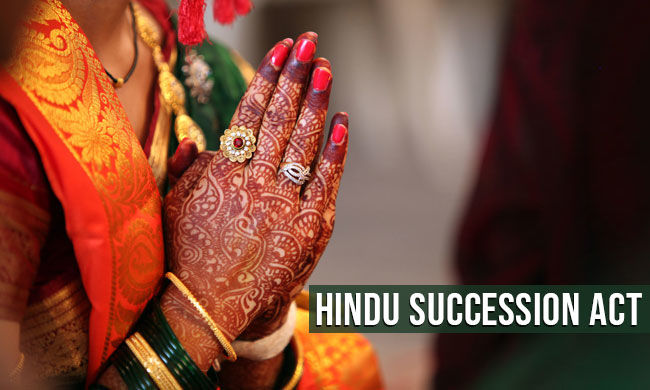A Detailed Guide to Hindu Property Inheritance Laws in India
Introduction:
Inheritance and succession planning are crucial yet complex aspects of estate management for Hindus in India. Hindu succession laws have undergone major changes in recent years, granting daughters equal rights in ancestral property. This extensive guide covers all key topics related to Hindu property inheritance in a detailed manner.
Types of Property:
Hindu property can be broadly classified into two categories:
1. Ancestral/Coparcenary Property
– This consists of property inherited up to 4 generations of male lineage.
– Earlier only sons had a birthright and share in such property.
– After the Hindu Succession Act amendments in 2005, daughters also have equal coparcenary rights by birth in ancestral property.
2. Self-Acquired Property
– This is any property acquired by an individual during their lifetime through purchase, mortgage, gift, inheritance from maternal ancestors, etc.
– For such property, sons and daughters stand on equal footing.
Succession Rules for Coparcenary Property:
Earlier, coparcenary property used to pass to heirs only through the male line of succession based on the rule of survivorship. The succession order was as follows:
– Sons
– Grandsons through sons
– Great grandsons through grandsons
If a man died leaving no male heirs, the property could go to remote male agnates like nephews, uncles etc. Women had no rights.
After 2005 Amendment:
– Sons and daughters both have equal coparcenary rights by birth in ancestral property.
– Daughters can also become kartas or managers of a Hindu Undivided Family (HUF) property.
– If a coparcener dies leaving no heirs, the property will pass to his/her legal heirs as per succession charts.
Important Sections:
Sections 6, 8, 15(1)(a), 15(2)(a) of the Hindu Succession Act 1956 deal with coparcenary rights and succession.
Succession Rules for Self-Acquired Property:
For self-acquired property of a Hindu male or female, the succession occurs in the following preferential order:
1. Children/descendents
2. Mother and Father
3. Husband or Wife
4. Heirs of husband or wife
5. Heirs of father
6. Heirs of mother
Relevant Sections:
Sections 15(1)(b), 15(1)(d), 15(2), 16 of the Hindu Succession Act 1956 cover these rules.
Making a Will:
– A Hindu can make a testamentary will to divide self-acquired property according to their own wishes and override the default succession order.
– The will must adhere to legal requirements like witness attestation.
– Certain heirs like children and dependents have rights over a portion of assets despite any will.
Protection of Elderly Parents:
– The Maintenance and Welfare of Parents and Senior Citizens Act 2007 provides measures for financial protection of elderly.
– Children or heirs are obligated to provide monthly maintenance to parents and senior citizens.
– Tribunals can order compensation for neglected parents/senior citizens.
Registration of Documents:
– It is advisable to properly register all deeds of family settlement, partition, release of coparcenary rights etc.
– Unregistered documents have limited validity and can complicate inheritance.
The Hindu Succession Act, 1956 (HSA) governs the succession of property among Hindus in India. The Act applies to all Hindus, including Jains, Buddhists, and Sikhs. It also applies to Hindus who have converted to another religion.
How to split property among siblings
The HSA provides for equal distribution of property among siblings of both genders. This means that if a Hindu dies without leaving a will (intestate), their property will be divided equally among their sons, daughters, and any children of their deceased sons or daughters.
How to handle inherited and self-acquired property
The HSA does not distinguish between inherited and self-acquired property. All property of a Hindu, whether inherited or self-acquired, is subject to the same rules of succession.
Indian laws governing Hindu succession
The HSA is the primary law governing Hindu succession in India. However, there are a few other laws that also apply to certain aspects of Hindu succession. For example, the Hindu Marriage Act, 1955 and the Special Marriage Act, 1954 contain provisions relating to the succession of property of married Hindu women.
Detailed act and sections related to Hindu succession
The HSA contains a detailed list of the heirs to the property of a Hindu who dies intestate. The heirs are divided into two classes:
- Class I heirs: These heirs have a higher priority and include the deceased’s spouse, children, and grandchildren.
- Class II heirs: These heirs have a lower priority and include the deceased’s parents, siblings, and their descendants.
If there are no heirs in Class I, the property will go to the heirs in Class II. If there are no heirs in either class, the property will devolve to the State.
Procedure linked to enable smooth succession
To enable smooth succession, it is important to create a will. A will is a legal document that states how a person wants their property to be distributed after their death. If a Hindu dies without leaving a will, their property will be distributed according to the HSA, which may not be in accordance with their wishes.
Risks and other considerations
There are a few risks and considerations that should be kept in mind when dealing with Hindu succession of property. One risk is that there may be disputes among the heirs over the distribution of the property. Another risk is that the property may be lost or wasted if it is not properly managed.
To mitigate these risks, it is important to have a clear understanding of the HSA and to seek legal advice if necessary. It is also important to have a proper succession plan in place. This may involve creating a will, setting up trusts, and appointing guardians for minor children.
When to invoke intestate will
An intestate will is invoked when a person dies without leaving a will. In this case, the person’s property will be distributed according to the HSA.
How should property be divided among children
The HSA provides for equal distribution of property among children of both genders. This means that if a Hindu dies intestate, their property will be divided equally among their sons, daughters, and any children of their deceased sons or daughters.
Which sections of law support it
Section 6 of the HSA provides for the devolution of interest in coparcenary property. Coparcenary property is property that is jointly owned by a Hindu male and his male lineal descendants. Section 6 provides that on the death of a male coparcener, his interest in the coparcenary property will pass on to his sons, daughters, and any children of his deceased sons or daughters.
How to protect old age financial stability and not dependent financially
To protect old age financial stability and not be dependent financially, it is important to plan for succession. This may involve creating a will, setting up trusts, and appointing guardians for minor children. It is also important to have a clear understanding of the HSA and to seek legal advice if necessary.
Here are some additional tips for protecting your financial stability in old age:
- Save and invest regularly throughout your life.
- Pay off your debts as soon as possible.
- Create a budget and stick to it.
- Get insurance to protect yourself against unexpected expenses.
- Consider working part-time in retirement to supplement your income.
- Live in a modest home and downsize as needed.
- Take advantage of government programs and benefits for seniors.
Conclusion:
Hindu inheritance laws aim to balance traditional succession practices with evolving principles of equality. Proper consultation and succession planning are vital for the smooth inter-generational transfer of family assets. This guide covers all key aspects in a detailed manner to enrich understanding of property inheritance for Hindus in India.

At ProLegalMinds, we’re dedicated to ensuring that your property disputes are resolved effectively, and family relationships are maintained. Contact us today for expert legal guidance and a fair resolution.
Click the link https://lnkd.in/gpS-Vnft to schedule your appointment now. Speak to us on +91-7799518123

